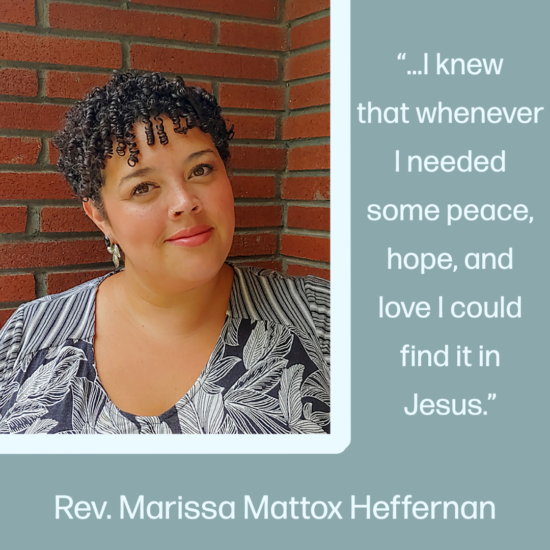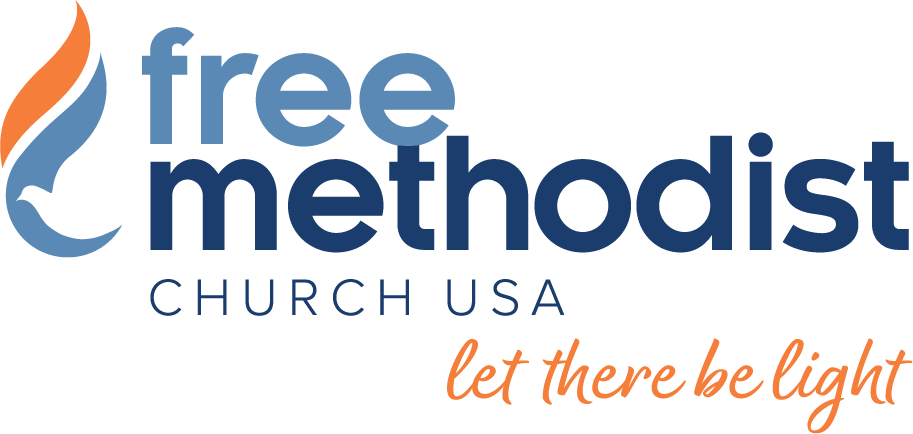 “When you see something that is not right, not fair, not just, you have to speak up. You have to say something; you have to do something.” – John Lewis
“When you see something that is not right, not fair, not just, you have to speak up. You have to say something; you have to do something.” – John Lewis
If you had told me over six years ago, when I entered the ordination journey, that this quote would reflect what I now know to be the heart of my ministry, I think I would have run! But isn’t that God’s way? There’s a reason that God shows up as a “lamp upon our feet.” It is likely that if we saw the whole path in the light of day, there aren’t too many of us who would follow.
But God! I grew up in a home where church was an unshakable part of our Sunday routine. Seeds were sown at a young age. With those seeds in my heart, I knew that whenever I needed some peace, hope, and love I could find it in Jesus. And it was in those early years that I experienced God tangibly and heard God most clearly in worship through music in church — standing and singing as one to an audience of One.
I am so thankful I had those seeds stowed away. They were what drew me back to the church in my early twenties and without them, I wouldn’t have stayed. While the church that I grew up in was a refuge, I’ve since learned that experience would be the exception instead of the rule. I visited churches trying to find one that felt like a fit but often felt out of place, unsure and self-conscious. Being multi-racial, there are very few spaces you can walk into and know you will fit. I kept pressing in, fueled by those seeds, and holding on to the little glimmers from God.
Eventually, I began attending a Free Methodist church, where I found a bubble of refuge serving on the worship team. After years on the team and in the midst of a tumultuous transition within the church, I felt God drawing me into ministry. I was shocked and frankly scared! I wasn’t sure if I could be called! I had never seen someone like me in ministry — female, not white, young-ish, nose ring, new mom. I had also experienced enough to know that churches, composed of imperfect people, are imperfect. I knew there was brokenness, but in ministry, I would learn how deep that brokenness might be.
After one of those moments where I knew I heard God speak clearly, I went ahead and made the leap. I began the ordination process. I thought if I studied hard enough, followed the “rules,” and walked in step with my lead pastors that everything would be okay. I would “fit.”
I tried and I tried. I aced every course I took for educational requirements. I served however and wherever the lead pastors asked (even when it was painful). But I didn’t fit, and I didn’t know why. The FMC ordains women! Although the only women I had seen preach by that point in my life were at Women of Faith. The FMC championed abolition! Although the only lead pastors I had met by that point in my life were White men. So … was it me? My confidence was slowly eroding and my questions started to shift from “Am I doing something wrong?” to “Is there something wrong with me?”
DISCLAIMER: I know in my heart of hearts that all of the lead pastors I served under had my best interests at heart. They supported and encouraged me … the best they knew how.
Yet, that’s the point. They did the best they knew how. It was in that realization that I experienced a turning point. Another pastor, a White, middle-aged, male mentor recommended a book, White Fragility. He had just read the book and recognized some of what he hadn’t known. He said I should read the book because “you need to know what you’re up against.” From those pages I learned that much of what I experienced was the result of implicit bias — the attitudes we hold that affect our actions in an unconscious way — on a personal and systemic level. It shifted my question from “Is there something wrong with me?” to “Is this the wrong place for me?”; from “Do I fit?” to “Do I fit here?”
As I wrestled with those questions, my heart began to ache. A new question rose to the surface: If I, a soon-to-be ordained pastor, have struggled to stay, then how many people walk away from our churches having been made to feel like they didn’t fit before receiving the seeds we all so desperately need? How many have we, as the church, turned away? A new word was added to the question, not just “Do I fit here?” but “Do I want to fit here?”
In the midst of chewing on those questions, I had another turning point. As one of my final ordination requirements, I attended the Embrace All Conference. I had never experienced diversity like that in an FMC context; diversity of perspective, leadership, preaching/teaching styles, gender, race, all engaging in discussions around justice (i.e. “what love looks like in public” in the words of Cornel West). At the end of the conference, they made a space at the table for me and, for the first time, I asked some of those questions out loud. As the table listened, they nodded their heads and then answered: not only did I fit there but, “We need your voice. We need you.”
I now sit on the board of the Justice Network of the FMC as affiliate director and am newly appointed as founding director of our first affiliate, the Genesis Justice Network. The Justice Network serves to resource, raise awareness, and be a catalyst of change for a greater emphasis on justice-oriented teaching and action in our denomination. The affiliates make that action more effective and accessible on a local level.
If you would like to partner with me and support my work and that of the Genesis Justice Network, please send your donations to the Genesis Conference with Genesis Justice Network in the memo line.
About the Author
Marissa Mattox Heffernan is a newly ordained (May/November 2020) elder in the Genesis Conference. She has served in various pastoral roles since 2013 leading in the areas of assimilation, discipleship, worship and facilitating leadership development of lay ministry leaders and is a trained facilitator in racial reconciliation. Her passion has long been leading worship through music. The unity experienced in worship has driven Marissa to explore what the culture of Christianity would look like if all people were equally recognized as image-bearers of God. Marissa is married to her best friend, Matt, and is mom to three daughters. Marissa loves a good road trip, a good book, and a bag of yarn.
